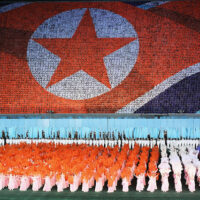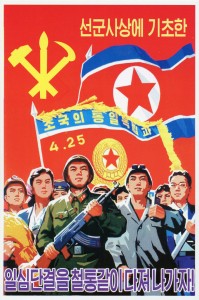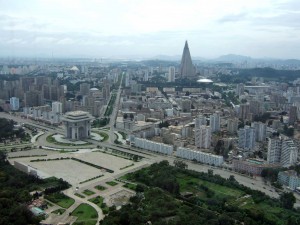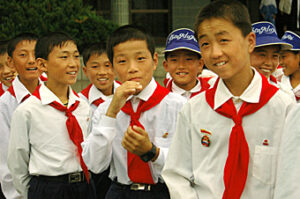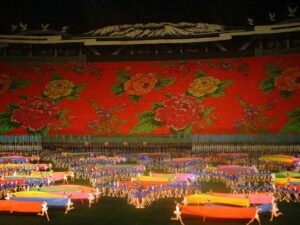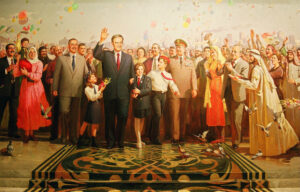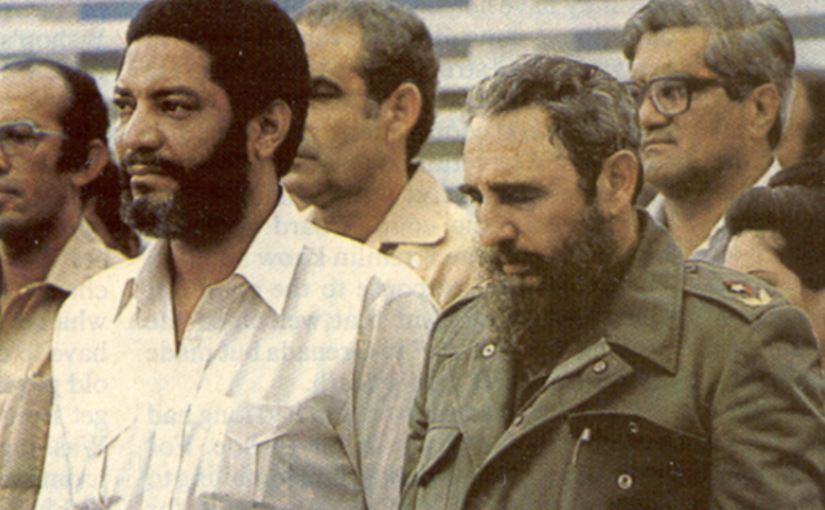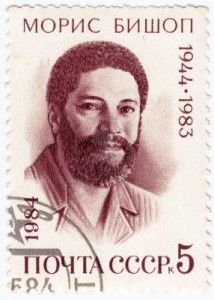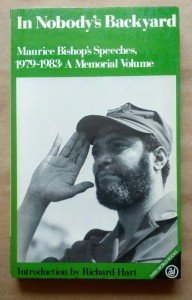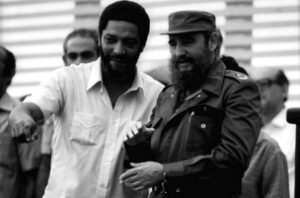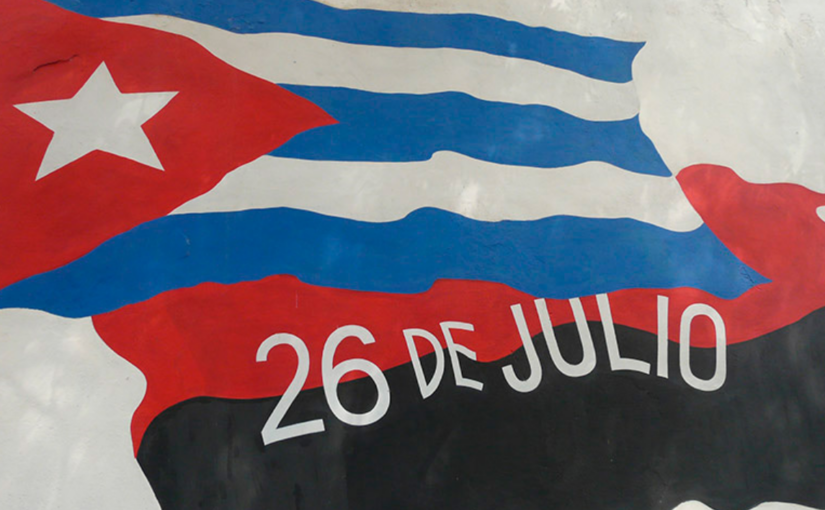“Let’s save the human race – let’s finish off the empire”
In the course of his 14 years as President of Venezuela, Hugo Rafael Chávez Frías became a much-admired figure among the international left. Although any actual-existing revolutionary leadership will always attract the suspicion of western coffee-shop socialists (and Chávez certainly had his fair share of detractors), this larger-than-life figure won hearts with his immense love for the Venezuelan people and his willingness to loudly stand up for socialist ideals in a post-Soviet end-of-history world where few had the courage to set forth such views.
Nobody could deny Chávez’s role in leading the Latin American backlash against neoliberal dogma; nor could they deny the progressive, pro-poor nature of Venezuela’s social programmes. Under Chávez’s leadership, Venezuela’s oil wealth (supplemented by Chinese soft loans) has been put to excellent use. With the help of Cuban expertise, illiteracy has become a thing of the past in Venezuela. Access to education has been vastly increased at all levels, and this is considered as a fundamental component of building democracy. Chávez famously said that “the only way of ending poverty is giving power to the poor. Knowledge and consciousness are the main power!”
Again with Cuba’s help, the Barrio Adentro programme has brought high quality healthcare to Venezuela’s poorest communities, most of which previously had zero access to professional healthcare of any kind. Much to the dismay of the western multinationals, a large array of businesses have been nationalised, and there have been numerous experiments with worker management and collective ownership. Grassroots communal councils have been set up across the country with a view to engaging the masses and building a more meaningful democracy. The political process set in motion by Chávez is a socialist-oriented programme that prioritises the needs of the millions of ordinary people: the slum-dwellers, the workers, the peasants, the unemployed, the indigenous, the African, the disenfranchised. Meanwhile, Chávez’s government held elections like they were going out of fashion. This profound process in Venezuela is so exciting that it has even been able to win support from sections of the western liberal-left, usually so reliable in its outright rejection of anti-imperialist and socialist-oriented states, from A(rgentina) to Z(imbabwe).
However, one aspect of Hugo Chávez’s legacy that makes much of the western left rather uncomfortable (and makes the western ruling classes furious) is Chávez’s uncompromising anti-imperialism – his absolute insistence on at-all-costs global unity against the main enemy. Everybody likes a nice literacy programme, but why oh why did Chávez have to go and align himself with brutal dictatorships in Iran, Iraq, Syria, Zimbabwe, Cuba, Libya, Belarus, Vietnam and North Korea? Why did he have to be so friendly with serial-human-rights-abusing Russia and China? Such a sentiment could be found in more than a few Chávez obituaries emanating from the western left.
For example, the irrepressible International ‘Socialist’ Organisation complained that “the international legacy of the Venezuelan president … has been tarnished by his appalling support of Gaddafi, Assad, Ahmadinejad and the Chinese state.” Owen Jones, 2013 winner of Britain’s Got Liberal-Left Talent, was troubled by “Chavez’s unpleasant foreign associations. Although his closest allies were his fellow democratically elected left-of-centre governments in Latin America, he also supported brutal dictators in Iran, Libya and Syria. It has certainly sullied his reputation”. (I should point out in passing that Chavez’s closest ally was Cuba, which Jones presumably does not consider to be “democratically elected” and which is rather a long way “left-of-centre”!)
This pattern – celebrating Venezuela’s domestic policy whilst denouncing its international stance – is a useful reminder as to the limits of western social democracy and indeed the whole concept of ‘freedom of speech’ in capitalist societies. An ‘alternative’ viewpoint is basically accepted – and can even be given a voice in the liberal media – to the extent that it keeps within reasonably well-defined limits. The British state is willing to tolerate a minority viewpoint that promotes a slightly less deranged version of capitalism, especially if it’s in a country that doesn’t have much connection with British economic interests. What the western ruling classes will never tolerate – and therefore what the social-democratic left will never promote – is global anti-imperialist unity; is the unambiguous and consistent support for all states and movements fighting imperialism. Such unity is precisely what presents an existential threat to imperialism; it is precisely what the Project for a New American Century (PNAC) seeks to destroy; it is precisely what the endless divide-and-rule strategies seek to subvert; it is, in short, the only hope of putting a stop to imperialist domination and creating a world where peoples can develop in peace and security. As Chávez himself put it: “Let’s save the human race – let’s finish off the empire”.
Chávez gave his whole-hearted support to the global movement towards multipolarity; to the increasing coordination between the progressive family of nations. He supported deep economic, political, cultural and military ties among those states that challenge western hegemony. This aspect of Chávez is absolutely central to his political legacy, and is what the western ruling classes hated him for most (in their eyes he had “inherited Fidel Castro’s mantle as Washington’s main irritant in Latin America”). What I attempt to show with this article is that, rather than sweeping Chavez’s revolutionary internationalism under the carpet, or seeing it as a blot on his progressive copybook, this anti-imperialist legacy needs to be explored, understood, defended and built upon.
“There are no boundaries in this struggle to the death. We cannot be indifferent to what happens anywhere in the world, for a victory by any country over imperialism is our victory; just as any country’s defeat is a defeat for all of us.” (Ernesto Che Guevara)
Building the global anti-imperialist front
The modern world can be a very unforgiving environment, particularly for countries with eccentric ideas about taking control of their own natural resources, redistributing wealth, redistributing land, having an independent foreign policy, that sort of thing. Those countries of 20th century Latin America that attempted to exercise independence and sovereignty were punished for their sins with brutal coups and merciless dictatorships (Argentina, Brazil, Chile). Tiny Cuba has been treated to a half-century of ruthless economic blockade, political destabilisation, diplomatic isolation and a few hundred assassination attempts. When Zimbabwe transferred land from wealthy white colonisers to impoverished black indigenous workers, the ruling classes of Britain and the US made clear their dissatisfaction by orchestrating a vicious slander campaign against Zanu-PF and Robert Mugabe, imposing sanctions, and channelling large sums of cash to the opposition Movement for Democratic Change. When Ukrainian president Viktor Yanukovych rejected the EU’s many-rather-unpleasant-strings-attached loan package, opting instead for Russian economic assistance, he was promptly swept out of office by a western-backed ‘revolution’. The attempts of Vietnam, Korea, Iraq, Yugoslavia, Afghanistan, Grenada, Nicaragua, Libya and other countries to forge an independent path have been answered with all-out imperialist war.
To survive in such a hostile world, there are only two real choices: capitulate, or unite and fight.
Hugo Chávez had a very clear and far-sighted worldview, informed by his rich knowledge of world history, his identification of US-led imperialism as the major obstacle to peace and development, and his own experiences of trying to exercise sovereignty and build Venezuelan socialism in the face of destabilisation and CIA-backed coup attempts. He saw Venezuela as part of a global movement challenging half a millennium of colonialism, imperialism and racism; a global movement that included China, Brazil, Russia, Zimbabwe, Libya, Syria, South Africa, Cuba, Belarus, Vietnam, Iran, Ecuador, Bolivia, DPRK, Nicaragua, Argentina and more. He recognised that the enemy used every trick in the book to undermine those countries that refused to go along with the Washington Consensus, and he understood the urgent need for a very wide-ranging unity in order to resist this onslaught. This understanding led Chávez to be totally consistent in his anti-imperialism. If unity is strength, then one can’t just stand by and watch the empire pick off our allies one by one. As he put it during a visit to South Africa in 2008:
“A day can’t be lost and a second can’t be lost in the work of uniting us, the countries of the Third World… Only united will we be free and only free will we be able to develop ourselves fully.”
Therefore the strong relationships that Chávez and his team built with all socialist and anti-imperialist states are no anomaly, no unfortunate accident, no error of judgement, but represent an ideological and strategic position with is central to Chavismo.
Syria
“Arab civilization and our civilization, the Latin American one, are being summoned in this new century to play the fundamental role of liberating the world, saving the world from the imperialism and capitalist hegemony that threaten the human species. Syria and Venezuela are at the vanguard of this struggle.” (Hugo Chávez, 2010, during Bashar al-Assad’s visit to Caracas)
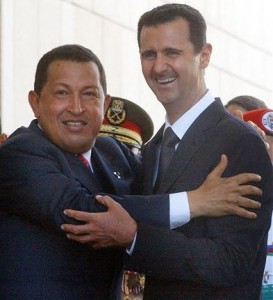 Early on in his presidency, Chávez identified Syria as a key ally – one of the few countries in the Arab world that had consistently taken a firm stand against imperialism and zionism (Chávez, let it be noted, was a staunch supporter of Palestine and opponent of Israel).
Early on in his presidency, Chávez identified Syria as a key ally – one of the few countries in the Arab world that had consistently taken a firm stand against imperialism and zionism (Chávez, let it be noted, was a staunch supporter of Palestine and opponent of Israel).
Syria, a proud member of John Bolton’s prestigious Beyond the Axis of Evil group, is despised by the west for its leading role in supporting Palestinian resistance over the course of four decades, its alignment with the Lebanese resistance movement Hezbollah (Syrian support was crucial to Hezbollah’s 2006 defeat of Israel in South Lebanon), and its alliance with Iran.
Visiting Damascus in August 2006, Chávez stated, after a long meeting with Syrian President Bashar al-Assad: “We have decided to be free. We want to cooperate to build a new world where states’ and people’s self-determination are respected… We have the same political vision and we will resist American imperialist aggression together.” Visiting Syria again in 2009 to put together a plan of economic cooperation, Chávez described the Syrian people as “architects of resistance” to imperialism, and called on the peoples of the Global South to unite, proclaiming: “We should fight to create consciousness that is free from imperialist doctrine… fight to defeat backwardness, poverty, misery… to convert our countries into true powers through the consciousness of the people.”
When Syria came under threat of regime change in 2011, Chávez and his government were quick to state their loyalty to the Syrian government. “This is a crisis that has been planned and provoked… Syria is a sovereign nation. This crisis has a single cause: the world has entered into a new era of imperialism. It’s madness.” Having made its political line very clear, Venezuela followed up by putting words into action, shipping free diesel fuel to Syria on multiple occasions to help it overcome shortages created by sanctions.
Needless to say, Venezuela’s unambiguously anti-imperialist position wasn’t appreciated by many on the western left. Counterfire, among others, chastised Chávez in no uncertain terms for his vocal support for the Syrian government: ”The statement of support of Venezuelan President Hugo Chavez to ‘the socialist leader and Brother Bashar al Assad’, claiming he is the target of an imperialist operation to overthrow his regime and blaming the US for unrest in the country, is an insult to the Syrian protesters and the martyrs who lost their lives in the uprising against the Syrian authoritarian regime.” According to Al-Jazeera (mouthpiece of the Qatari monarchy – a major supplier of arms and money to rebel groups in Syria), “Chavez and others discredited themselves and probably discouraged any lasting alliance between Arab revolutionaries and sympathetic forces in South America”.
Chávez was not swayed by such judgements; when it was deeply unfashionable to do so, he defended Syria from the regime change campaign it was (and still is) struggling against. “How can I not support Assad? He’s the legitimate leader.”
In the course of over three years, the true nature of the Syria crisis has become increasingly transparent, as the myth of the democratic-socialist-feminist-peaceful-secular opposition has faded away and been replaced by the rather less rosy reality of murderous sectarian fundamentalists – armed to the teeth by Saudi Arabia, Qatar and Turkey, with the open approval of Britain and the US – tearing the country apart. (My article ‘Decriminalising Bashar’ deals with this issue in detail). That the west’s plan is to remove Syria from the resistance axis is now clear for all to see, but that wasn’t always the case. Analysing the situation from a standpoint of militant anti-imperialism, Chávez was able to understand the big picture from the start when so many others fell for the campaign of lies and demonisation.
Libya
Chávez recognised Libyan leader Muammar Gaddafi as an important ally in the global struggle against imperialism: someone who had successfully led their country away from colonial dependency, developed an advanced social welfare system (with the highest human development index, highest life expectancy, lowest infant mortality and highest literacy rate in Africa), and tangibly supported socialist and anti-imperialist movements around the world from Ireland to South Africa, Nicaragua to Palestine, Dominica to Namibia. Indeed, Chávez visited Libya five times during his presidency. In Tripoli for the 40th anniversary of the Libyan revolution (2009), he declared that Venezuela and Libya “have the same fate, the same battle against a common enemy and we will win.” He went on to make an impassioned call for African unity:
“Africa should never again allow countries to come from across the seas to impose certain political, economic, and social systems. Africa should be of the Africans, and only by way of unity will Africa be free and great.”
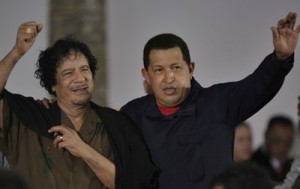 Just a few weeks later, Gaddafi arrived in Venezuela for his first ever trip to South America. At the Africa-South America Summit held on Margarita Island, Chávez presented Gaddafi with a replica of a sword used by Venezuelan independence hero Simón Bolívar, stating: “Gaddafi is for Libya what Bolívar is for us.” It was Chávez’ and Gaddafi’s shared goal to usher in a new era of wide-ranging, meaningful cooperation between Africa and Latin America.
Just a few weeks later, Gaddafi arrived in Venezuela for his first ever trip to South America. At the Africa-South America Summit held on Margarita Island, Chávez presented Gaddafi with a replica of a sword used by Venezuelan independence hero Simón Bolívar, stating: “Gaddafi is for Libya what Bolívar is for us.” It was Chávez’ and Gaddafi’s shared goal to usher in a new era of wide-ranging, meaningful cooperation between Africa and Latin America.
As with Syria, Chávez understood from the beginning what the ‘uprising’ in Libya was all about. While luminaries of the British left such as Gilbert Achcar were loudly calling for a no-fly zone to help get rid of Gaddafi, Chávez spoke out in defence of his friend and comrade: “A campaign of lies is being spun together regarding Libya. I’m not going to condemn Gaddafi. I’d be a coward to condemn someone who has been my friend.”
Venezuela led the calls for a peaceful resolution to the crisis, offering its services several times to help mediate between the Libyan government and rebels. “Let’s try to help, to intercede between the parties. A cease-fire, sitting down at a table. That’s the path when facing conflicts of this sort.” Sadly, the rebels and their NATO backers were not in the slightest bit interested in negotiations.
Together with regional allies including Cuba, Argentina, Bolivia, Nicaragua and Ecuador, Venezuela unamiguously denounced the barbaric NATO bombing. “Libya is under imperial fire. Nothing justifies this,” said Chávez. “Indiscriminate bombing. Who gave those countries the right? Neither the United States, nor France, nor England, nor any country has the right to be dropping bombs… I hope a revolution blows up on them in the United States. Let’s see what they do.” Summing up NATO’s post-Washington Consensus strategy in a very clear and simple way, he stated: “The empire is going crazy and it’s a real threat to world peace as imperialism has entered its phase of extreme craziness.” And in August 2011, when Tripoli was bombed into submission, Chávez predicted with remarkable prescience that “the drama of Libya isn’t ending with the fall of Gaddafi’s government. The tragedy in Libya is just beginning.”
Libya was another issue on which Chávez’s solid anti-imperialism was totally at odds with the first-world liberalism of the western left. Whereas Alex Callinicos, leading theoretician of the embarrassingly misnamed Socialist Workers Party (UK), called on his followers to “join the Libyan people’s celebrations of the tyrant’s demise”, Chávez was shaken by the news of Gaddafi’s NATO-orchestrated murder. ”Regrettably, Gaddafi’s death has been confirmed. He was murdered… I will remember him all of my life as a great fighter, a revolutionary and a martyr.”
Yes, there is a pattern here. Whereas the western left has almost invariably fallen for the demonisation campaigns orchestrated against socialist and anti-imperialist states by the right-wing press, Chávez unfailingly saw through the propaganda and stayed true to his dream of global unity against the empire. In a world of cowardice and fickleness, he stood up and said: “I am not a coward, I am not fickle.”
Chávez started from a position of instinctive distrust for the propaganda that comes out of the west. Never did he fall for simplistic ‘evil dictator’ Blofeld-style cat-stroking-supervillain narratives. His whole life and political experience had taught him that the mainstream media is not to be trusted; that the imperialists spin every news item to suit their own interests. The Venezuelan media is still mainly run by the elite, who hate Chávez, who have always subjected Chávez to racism and classism, who have always spread lies and slander about him. It was easy enough for him to derive from that experience that what they said about the other countries in the ‘extended Axis of Evil’ was also probably nonsense. Meanwhile, which were the countries helping Venezuela out, supporting its policies, supporting regional integration of Latin America? Which were the countries supporting liberation movements around the world? Which were the countries supporting the liberation of Palestine – for example supplying the weaponry for the defence of Gaza? Which were the countries standing up to the US, to Britain, to France, to Israel?
Iran
Iran is another country that is routinely subjected to slander and demonisation in the west, and is another state with which Hugo Chávez built a lasting friendship, much to the dismay of western imperialism. In a fascinatingly silly article published in March 2007, senior US Republican Bailey Hutchison ranted: “In his struggle against US ‘imperialism,’ Mr. Chavez has found a useful ally in the world’s largest state sponsor of terrorism — the government of Iran. He is one of the few leaders to publicly support Iran’s nuclear weapons programme, and the Iranian mullahs have rewarded Mr. Chavez’s friendship with lucrative contracts, including the transfer of Iranian professionals and technologies to Venezuela. Last month, Mr. Chavez and Iranian President Mahmoud Ahmadinejad revealed plans for a $2 billion joint fund, part of which will be used as a ‘mechanism for liberation’ against American allies… Left unchecked, Messrs. Ahmadinejad and Chavez could be the Khrushchev-Castro tandem of the early 21st century, funneling arms, money and propaganda to Latin America, and endangering that region’s fragile democracies and volatile economies.”
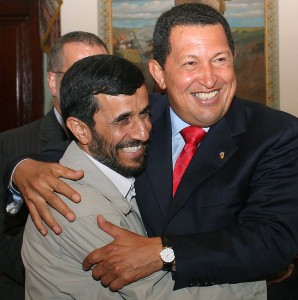 Chávez visited Iran several times, and hosted his Iranian counterpart – Mahmoud Ahmadinejad – in Venezuela on several occasions. Despite their differing ideologies and philosophies, the two leaders created a solid alliance based on anti-imperialist unity. “One of the targets that Yankee imperialism has in its sights is Iran, which is why we are showing our solidarity,” Chavez said. “When we meet, the devils go crazy.” Ahmadinejad talked of Chávez as “a brother and trench mate” and described Iran and Venezuela as being key parts of a revolutionary front “stretching all the way to East Asia” from Latin America. “If one day, my brother Mr. Chávez and I and a few other people were once alone in the world, today we have a long line of revolutionary officials and people standing alongside each other.”
Chávez visited Iran several times, and hosted his Iranian counterpart – Mahmoud Ahmadinejad – in Venezuela on several occasions. Despite their differing ideologies and philosophies, the two leaders created a solid alliance based on anti-imperialist unity. “One of the targets that Yankee imperialism has in its sights is Iran, which is why we are showing our solidarity,” Chavez said. “When we meet, the devils go crazy.” Ahmadinejad talked of Chávez as “a brother and trench mate” and described Iran and Venezuela as being key parts of a revolutionary front “stretching all the way to East Asia” from Latin America. “If one day, my brother Mr. Chávez and I and a few other people were once alone in the world, today we have a long line of revolutionary officials and people standing alongside each other.”
As a result of the friendly relations established between the two countries, practical cooperation has blossomed – trade has increased more than a hundred-fold since 2001 (bilateral trade reputedly exceeds $40 billion), and the two countries have joint ventures in several areas including energy, agriculture, housing, and infrastructure. Iran’s construction expertise has been used to build thousands of homes for Venezuela’s poor.
Chávez stood up for Iran’s right to develop nuclear power, and correctly noted that the nuclear issue was being used by the west to mobilise popular opinion for war, “like they used the excuse of weapons of mass destruction to do what they did in Iraq.” He declared Venezuela’s firm support for Iran with respect to the threat of war against it: “I should use the opportunity to condemn those military threats that are being made against Iran. We know that they will never be able to restrict the Islamic revolution in whatever way… We will always stand together, we will not only resist, we will also stand victorious beside one another.”
Iraq
One of Hugo Chávez’s priorities in the early years of his presidency was to revive the Organization of Petroleum Exporting Countries (OPEC), with a view to securing agreement that oil production should be reduced and the price should be increased. Having set a date for a full OPEC summit (only the second in the group’s history, and the first in 25 years), he went on a tour of all ten OPEC nations in order to personally invite each head of state to the summit. This itinerary necessarily included Iraq, an OPEC member. Chávez’s visit to Iraq in August 2000 sent waves of controversy, outrage and anxiety across the western world.
“Washington declared they were totally opposed to my visit to Baghdad. I told them I was going anyway; they argued there was a no-fly zone I couldn’t pass through or they might shoot down the plane. But we went to Baghdad anyway and spoke to Saddam.” (Cited in Bart Jones ‘The Hugo Chavez Story’).
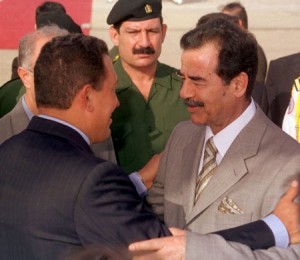 Chávez was in fact the first head of state to visit Iraq since the imposition of UN sanctions in 1991. In order to side-step the international flight ban in place against Iraq, Chávez and his team crossed into Iraq from Iran by land and were then flown to Baghdad by helicopter. There he was received in person by Saddam Hussein, who drove him round Baghdad for a late-night tour of the city. Responding to criticism from the ‘international community’, Chávez stated defiantly: “We regret and denounce the interference in our internal affairs. We do not and will not accept it… We are very happy to be in Baghdad, to smell the scent of history and to walk on the bank of the Tigris River.”
Chávez was in fact the first head of state to visit Iraq since the imposition of UN sanctions in 1991. In order to side-step the international flight ban in place against Iraq, Chávez and his team crossed into Iraq from Iran by land and were then flown to Baghdad by helicopter. There he was received in person by Saddam Hussein, who drove him round Baghdad for a late-night tour of the city. Responding to criticism from the ‘international community’, Chávez stated defiantly: “We regret and denounce the interference in our internal affairs. We do not and will not accept it… We are very happy to be in Baghdad, to smell the scent of history and to walk on the bank of the Tigris River.”
The two leaders had extended discussions, described by Chávez as fruitful. “I found him an educated man who understands everything linked to OPEC.” Chávez and his colleagues also took the opportunity to denounce the sanctions regime responsible for the deaths of hundreds of thousands of Iraqi children. “President Chavez affirmed the Venezuelan position supporting any accord against any kind of boycott or sanctions that are applied against Iraq or any other country in the world,” said Deputy Foreign Minister Jorge Valero.
One fascinating outcome of Chávez’s efforts is that, a few weeks after his visit to Baghdad, on the sidelines of the OPEC summit in Caracas, Iran and Iraq held their highest-level talks since the bitter and horrific war between the two countries (which lasted from 1980 to 1988 and resulted in at least a million casualties). Iraqi Vice-President Taha Yassin Ramadan said that the talks between him and Iranian President Mohammad Khatami had been “cordial and frank. We discussed co-operation between the two countries and agreed to work jointly for the improvement of relations between the two countries.” Chávez commented: “I am at their service to help… the full reactivation of relations between two fraternal people, two fraternal countries, which are also members of OPEC, and which are calling for a boost of reunification of the whole Arab-Islamic world.”
That Chávez was willing and able to facilitate this process speaks to his strategic brilliance and his long-term vision. Fully understanding the painful history of enmity between Iran and Iraq; fully understanding how arduous the road of reconciliation was likely to be; he nonetheless recognised that diffusing the tension between these two great nations would be a significant boost to the global anti-imperialist front. Its side-effects might have included reconciliation between Iraq and Syria (the latter being a close ally of Iran), between Iraq and Libya (which had supported Iran in the Iran-Iraq War), between Iran and the Arab world in general, and among the different Palestinian factions. Had this process of rapprochement reached its logical conclusion, the region as a whole would have been in a much stronger position in its ongoing struggle against imperialism and zionism. It would have pushed forward the Palestinain struggle for self-determination, and it may have prevented the disastrous Iraq war in which over a million Iraqis lost their lives. Indeed, the prospect of regional unity based on Iran-Iraq reconciliation may well have been one of the factors that informed the US and Britain’s decision to launch their invasion of Iraq in 2003.
Cuba
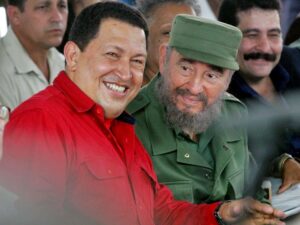 The most maligned state in the western hemisphere, Cuba has been hit hard over the years by an aggressively-enforced US economic and diplomatic blockade. Until recent decades, most Latin American governments steered clear of Cuba for fear of angering their paymasters north of the border. However, the situation has changed significantly in the last 15 years since the beginning of Chávez’s Bolivarian Revolution.
The most maligned state in the western hemisphere, Cuba has been hit hard over the years by an aggressively-enforced US economic and diplomatic blockade. Until recent decades, most Latin American governments steered clear of Cuba for fear of angering their paymasters north of the border. However, the situation has changed significantly in the last 15 years since the beginning of Chávez’s Bolivarian Revolution.
Chávez never made a secret of his affection for Cuba, his admiration for Cuba’s socialism and militant internationalism, and his respect for Fidel Castro as a revolutionary.
“Fidel to me is a father, a comrade, a master of perfect strategy.” Hugo Chavez, 2005.
Visiting Cuba in 1999, Chávez told the audience at the University of Havana that “Venezuela is traveling towards the same sea as the Cuban people, a sea of happiness and of real social justice and peace… Here we are, as alert as ever, Fidel and Hugo, fighting with dignity and courage to defend the interests of our people, and to bring alive the idea of Bolívar and Martí. In the name of Cuba and Venezuela, I appeal for the unity of our two peoples, and of the revolutions that we both lead. Bolívar and Martí, one country united!” (cited in Richard Gott Hugo Chávez and the Bolivarian Revolution). Defending Cuba against claims that it’s a ‘dictatorship’, Chávez pointed out that Cuba has much deeper and broader forms of democracy than those countries making the accusations. “People have asked me how I can support Fidel if he’s a dictator. But Cuba doesn’t have a dictatorship… It’s a revolutionary democracy.”
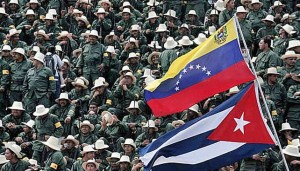 A series of mutually beneficial deals were signed in 2000 which have been an economic lifeline for Cuba and which have been crucial to the success of Venezuela’s social programmes. The Barrio Adentro community healthcare programme has brought Cuban medical expertise to millions of poor Venezuelans. According to official estimates, it has “saved the lives of 1.5 million Venezuelans. Another 1.5 million Venezuelans have also received free eye surgery from Mission Miracle, a similar health care programme founded in 2004 to provide cost free optical care to residents.”
A series of mutually beneficial deals were signed in 2000 which have been an economic lifeline for Cuba and which have been crucial to the success of Venezuela’s social programmes. The Barrio Adentro community healthcare programme has brought Cuban medical expertise to millions of poor Venezuelans. According to official estimates, it has “saved the lives of 1.5 million Venezuelans. Another 1.5 million Venezuelans have also received free eye surgery from Mission Miracle, a similar health care programme founded in 2004 to provide cost free optical care to residents.”
Further: “More than 53,000 Venezuelans have received free health care for chronic diseases in Cuba thanks to a bilateral agreement signed between the two Latin American nations that has increased social services and improved the quality of life for residents of Venezuela.” Additionally, Cuba has provided expertise and support for Venezuela’s literacy programme, which has been successful in wiping out illiteracy.
Venezuela pays for these crucial services with free or heavily discounted oil, which is an enormous boost for the Cuban economy. Venezuela has also helped Cuba with billions of dollars’ worth of loans, investments and grants. In doing so, it has knowingly and proudly broken the US economic blockade of Cuba. In an extended interview given to Aleida Guevara, Chávez notes: “Before, Venezuela didn’t sell oil to Cuba. Why not? Because of a ruling from Washington, because of the blockade, and the Helms-Burton Law. We don’t give a damn about this, Cuba is our sister country and we will sell to Cuba.”
Chávez came under a great deal of criticism from the US for his relationship with Cuba. Needless to say, this didn’t affect him.
“I will never tire of acknowledging Cuba’s fantastic support, of highlighting it and expressing my gratitude in public, wherever I am and whoever I am with, in whatever world forum I happen to be addressing, regardless of how many faces burn with anger because I refer to Cuba in these terms… [At the Monterrey Summit of the Americas in 2003] they told me Bush was burning with anger. I was not looking at him, but afterwards I was told he turned red and sat motionless in his chair. I had mentioned Cuba three times. I had thanked the Cuban people and Fidel for their support. I have no regrets about that… That is what Gaddafi said to me when I told him by telephone what had happened in Monterrey. He asked why Cuba had not been at the meeting for the entire continent of the Americas. ‘Ah well! That’s because the US excluded Cuba.’ He said to me, ‘Listen Hugo, on one occasion here in Africa, the British tried to prevent Mugabe, the president of Zimbabwe, attending a European Union meeting on Africa. We said that if Mugabe didn’t go then nobody would. Latin America should do the same.'” (Cited in Aleida Guevara Chávez, Venezuela and the New Latin America)
The mere mention of the names Castro, Gaddafi and Mugabe in the same paragraph is enough to make liberal-left social democrats wince, such is their desire for acceptability; such is their enslavement to the western imperialist propaganda machine. Chávez, on the other hand, didn’t let the imperialists influence his thought one bit. He simply got on with the job of building the global anti-imperialist front by any means necessary. As Argentina’s ambassador to the UK, Alicia Castro, put it at a recent Venezuela Solidarity Campaign conference:
“Chávez rooted us in the basis of the widest possible unity – unity with anyone with the slightest chance of joining forces against imperialism”.
Multipolarity: breaking down the empire
With the decline of US economic and political hegemony, the rise of China, the emergence of progressive Latin America, and the resurgence of Russia since the end of the Yeltsin era, the world is moving inexorably towards a ‘multipolar’ model – “a pattern of multiple centres of power, all with a certain capacity to influence world affairs, shaping a negotiated order“ (Jenny Clegg, China’s Global Strategy). China has been particularly active in promoting multipolarity as a realistic means of containing imperialism and creating a democratic and stable world order in which formerly oppressed countries can develop in peace. Hugo Chávez was a strong supporter of this concept, linking it back to Venezuela’s independence hero Simón Bolívar:
“Bolívar engendered an international idea. He spoke of what today we call a multipolar world. He proposed the unification of South and Central America into what he called Greater Colombia, to enable negotiations on an equal basis with the other three quarters of the globe. This was his multipolar vision.” (Cited in Bart Jones The Hugo Chávez Story)
Regional integration
Chávez energetically pursued regional integration within South America, Central America and the Caribbean as a means of creating a united, progressive force that could indeed engage “on an equal basis with the other three quarters of the globe.” The Nicaraguan anti-imperialist analysts Jorge Capelán and Toni Solo write that “in Latin America, it is impossible to engage in the construction of socialist and anti-capitalist alternatives without at the same time struggling to integrate the region politically, economically and even culturally… That is the legacy of Bolivar, as was the legacy of Martí, of Sandino, Mariátegui, Gaitán, Che, Fidel Castro and many other Latin American revolutionaries since Independence. This is so because the colonial and imperial powers needed to split the region up into small countries in order to exploit its resources and labour. This is not something Chavez made up, it is an old insight down here.”
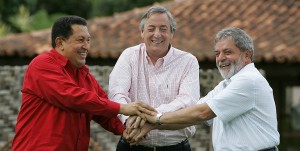 This project has been pursued through the creation of various organisations of regional integration – in particular ALBA (Bolivarian Alliance for the Peoples of Our America), CELAC (Community of Latin American and Caribbean States) and UNASUR (Union of South American Nations) – and through providing inspiration and practical support to other Latin American and Caribbean nations with similar visions, for example by providing the poorer countries in the region with access to Venezuelan oil on preferential terms. What we are witnessing in the present era is the emergence of a Latin America which is increasingly dominated by progressive countries and which is moving confidently towards integration and solidarity. Spanish analyst Ignacio Ramonet comments that Chavez’s “example has been followed, with different shades, in other countries. In Brazil, Argentina, Uruguay, Bolivia, Ecuador, Nicaragua, among others, there has been a series of processes which, to a certain degree, have advanced along the road opened by the Bolivarian Revolution.”
This project has been pursued through the creation of various organisations of regional integration – in particular ALBA (Bolivarian Alliance for the Peoples of Our America), CELAC (Community of Latin American and Caribbean States) and UNASUR (Union of South American Nations) – and through providing inspiration and practical support to other Latin American and Caribbean nations with similar visions, for example by providing the poorer countries in the region with access to Venezuelan oil on preferential terms. What we are witnessing in the present era is the emergence of a Latin America which is increasingly dominated by progressive countries and which is moving confidently towards integration and solidarity. Spanish analyst Ignacio Ramonet comments that Chavez’s “example has been followed, with different shades, in other countries. In Brazil, Argentina, Uruguay, Bolivia, Ecuador, Nicaragua, among others, there has been a series of processes which, to a certain degree, have advanced along the road opened by the Bolivarian Revolution.”
With the leadership of Chávez and Lula in particular, Latin America has been able to get closer to economic sovereignty than it has ever been. In 2005, the US plan for a free trade zone in the Americas (Free Trade Area of the Americas (FTAA)) was comprehensively defeated at the Summit of The Americas in Mar del Plata, Argentina. “Without the joint leadership of Hugo Chavez, Evo Morales, Lula da Silva and late Argentinean president Néstor Kirchner, this strategic defeat of imperialism in Latin America would not have been possible.”
Friendship with China
Beyond Latin America, Chávez worked hard to establish firm friendships with the world’s major developing powers, in particular China and Russia – which countries Fidel Castro recently described as “the two countries called upon to lead a new world which will allow for human survival, if imperialism does not first unleash a criminal, exterminating war.”
Bart Jones writes that Chavez’s “biggest international initiative outside of Latin America involved China… China’s starving energy market made it a perfect match for Chávez’s plans to divest himself as much as possible from the United States and foster a multipolar world. He struck a deal to send China oil. It started with a commitment in 2005 to supply thirty thousand barrels a day. By 2007 that was to jump to three hundred thousand, with an ultimate goal of half a million barrels a day by 2009 or 2010. It was part of a plan to increase from 15 percent to 45 percent the amount of its crude and other oil products Venezuela sent to Asia.”
Chávez clearly saw China as a crucial partner in the struggle for a new world, visiting six times over the course of his presidency and forging close economic, diplomatic and political relations. On his first trip, in 1999, he expressed his admiration for the Chinese economic model of market socialism, declaring: “We are witnessing the triumph of the Chinese revolution.” The Chinese model, with the state controlling the commanding heights of the economy whilst encouraging regulated private enterprise for less crucial areas, has played an important role in informing Venezuela’s own economic policy over the last 15 years.
In 2006, Chávez angered imperialists and liberals the world over by describing the Chinese revolution as “one of the greatest events of the 20th century”, and saying that Chinese socialism is “an example for Western leaders and governments that claim capitalism is the only alternative.” During Chávez’s tenure, Venezuela quickly became one of China’s key allies in Latin America, and Chávez was considered as a “great friend of the Chinese people”.
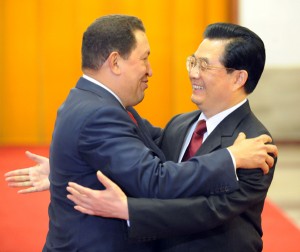 Celebrating the emergence of China as a major world power, Chávez pointed out the fundamental difference between the role of China – which has developed through its own diligence and persistence – and the colonialist/imperialist powers, who built their wealth on the basis of plunder, genocide, coups, terror and exploitation. “China is large but it’s not an empire. China doesn’t trample on anyone, it hasn’t invaded anyone, it doesn’t go around dropping bombs on anyone.” Chávez’s successor, Nicolas Maduro, follows up on this point: “China practises international relations on the basis of equality. It shows that, just starting the 21st century, it is possible to build a new world power without the imperialist practice of colonisation and domination.”
Celebrating the emergence of China as a major world power, Chávez pointed out the fundamental difference between the role of China – which has developed through its own diligence and persistence – and the colonialist/imperialist powers, who built their wealth on the basis of plunder, genocide, coups, terror and exploitation. “China is large but it’s not an empire. China doesn’t trample on anyone, it hasn’t invaded anyone, it doesn’t go around dropping bombs on anyone.” Chávez’s successor, Nicolas Maduro, follows up on this point: “China practises international relations on the basis of equality. It shows that, just starting the 21st century, it is possible to build a new world power without the imperialist practice of colonisation and domination.”
Venezuela has been the recipient of extensive infrastructure investment and large, friendly loans from China that have been critical for sustaining the social programmes and the development of industrialisation. By paying China in oil (to the tune of approximately 600,000 barrels a day), Venezuela is able to work towards its aim of trade diversification. “Since 2001 Venezuela and China have signed 480 cooperation agreements and participated in 143 joint projects… From 2005 to 2012 China lent Venezuela US$47 billion, accounting for 55% of Chinese credit issued to South American nations in that period.” The relationship continues to deepen, with Xi Jinping’s recent visit to Venezuela resulting in 38 new agreements worth 18 billion USD, including “a US$4 billion direct loan for Venezuela and US$14 billion in Chinese financing for development projects in energy, mining, industry, technology, communications, transport, housing and culture” (ibid).
Friendship with Russia
Of course, the battles to defend Venezuela, to integrate Latin America and to build a multipolar world are not solely economic or diplomatic. The prevailing military dominance of the US and its allies means that anti-imperialist forces must be able to defend their gains with arms. Himself a military man, Comandante Chávez never tired of stating that the Venezuelan Revolution is “peaceful but armed”. If, in the broad division of labour connected with building a multipolar world, China is the economic powerhouse, then Russia is taking the lead on military matters.
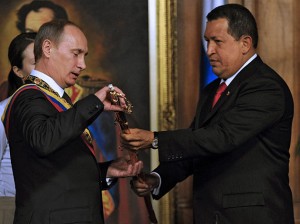 An obituary on Russia Today noted that, since 2005, “Venezuela has purchased $4 billion worth of arms from Russia, including 100,000 Kalashnikov rifles, and the two countries have held joint naval exercises in the Caribbean Sea. In 2010, Chavez announced that Russia would build Venezuela’s first nuclear power station, and that the nation had agreed to a further $1.6 billion in oil contracts with Moscow.” Nicolas Maduro, who was foreign minister at the time, was clear on the global significance of his country’s relationship with Russia: “The unipolar world is collapsing and finishing in all aspects, and the alliance with Russia is part of that effort to build a multipolar world.”
An obituary on Russia Today noted that, since 2005, “Venezuela has purchased $4 billion worth of arms from Russia, including 100,000 Kalashnikov rifles, and the two countries have held joint naval exercises in the Caribbean Sea. In 2010, Chavez announced that Russia would build Venezuela’s first nuclear power station, and that the nation had agreed to a further $1.6 billion in oil contracts with Moscow.” Nicolas Maduro, who was foreign minister at the time, was clear on the global significance of his country’s relationship with Russia: “The unipolar world is collapsing and finishing in all aspects, and the alliance with Russia is part of that effort to build a multipolar world.”
Speaking very plainly after the purchase of a consignment of S300 surface-to-air missiles from Russia in 2009, Chávez said: ”With these rockets it’s going to be very difficult for foreign planes to come and bomb us.” Given the fate of Libya just two years later, it would be difficult to argue that the Venezuelan president was suffering from paranoia.
Over the course of the last decade, Russia’s increasing alignment with the Global South has been a huge boost for the forces of multipolarity and anti-imperialism, especially when contrasted with the dark days of clientelism under the buffoon Yeltsin. Russia has taken on this role with poise, recognising that its continued independence and development is closely bound up with the success of China, Africa and Latin America. Vladimir Putin reportedly told Chávez that the latter’s re-election in 2012 was the “best present I could have for my 60th birthday”; and, a few months after Chávez’s death, Nicolas Maduro presided over the naming ceremony for Hugo Chávez Street in Moscow.
March forward in the name of Hugo Chávez
The untimely death of this brilliant human being was a terrible blow for progressive humanity to bear, and leaves a gap which is very difficult to fill. One has to guard against hero worship and the Hollywood-style individualised version of history, but there’s no denying that certain people – through their strength of purpose, their understanding, their determination, their heroism, their leadership skills, their creative brilliance, their charisma, their devotion to the people – play an outstanding role.
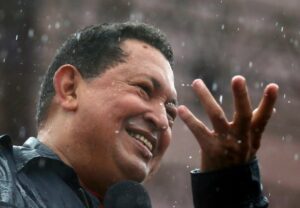 Hugo Chávez was such a person. He worked ceaselessly in pursuit of his vision: for a socialist Venezuela; for a united and sovereign Latin America; and for a fair, multipolar world order free from imperialist domination. His vision was infectious, and served to inspire people around the world. He breathed life into a global revolutionary process that had been little in evidence since the upswing of the 1970s (Mozambique, Angola, Chile (1970-73), Guinea Bissau, Afghanistan, Zimbabwe). In the intervening period we saw the decline and fall of the ‘Eastern Bloc’, the rise of neoliberal economics, the spread of ‘structural adjustment’, the genocidal impact of HIV/AIDS, and a deep disillusionment among much of the left. The Bolivarian Revolution, combined with China’s rise and an emerging multipolar world, has brought new hope.
Hugo Chávez was such a person. He worked ceaselessly in pursuit of his vision: for a socialist Venezuela; for a united and sovereign Latin America; and for a fair, multipolar world order free from imperialist domination. His vision was infectious, and served to inspire people around the world. He breathed life into a global revolutionary process that had been little in evidence since the upswing of the 1970s (Mozambique, Angola, Chile (1970-73), Guinea Bissau, Afghanistan, Zimbabwe). In the intervening period we saw the decline and fall of the ‘Eastern Bloc’, the rise of neoliberal economics, the spread of ‘structural adjustment’, the genocidal impact of HIV/AIDS, and a deep disillusionment among much of the left. The Bolivarian Revolution, combined with China’s rise and an emerging multipolar world, has brought new hope.
Speaking recently at the July 26 Historical Museum in Santiago de Cuba, Xi Jinping said: “Revolutionary martyrs are precious spiritual treasures that have inspired us to continuously march forward.” May the work, example and ideas of Hugo Chávez continue to inspire and educate us, and may his revolutionary internationalism continue to be studied and honoured.

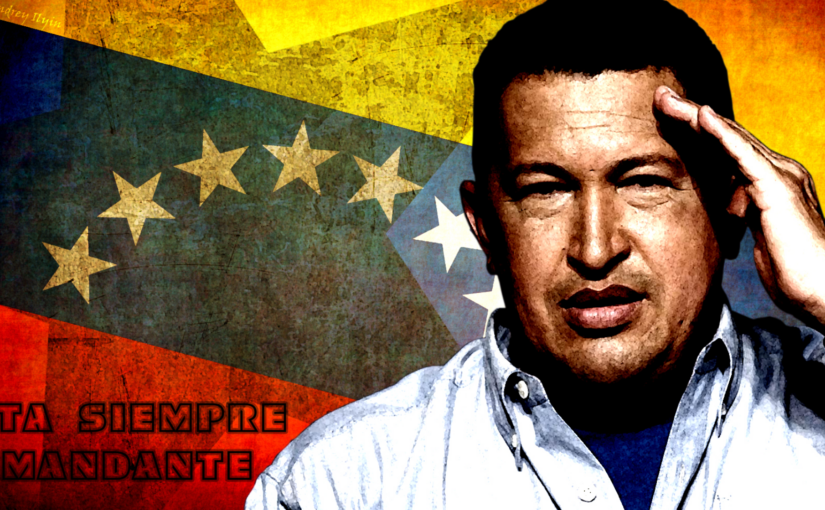
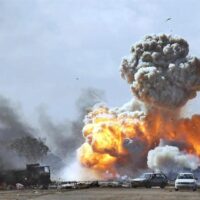
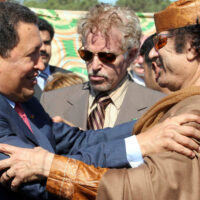
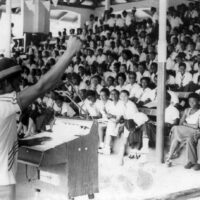

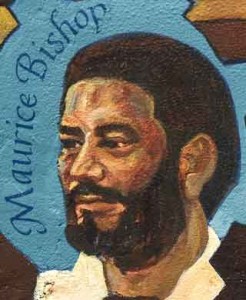
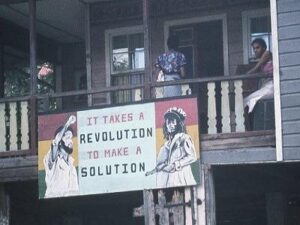
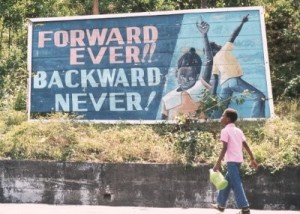

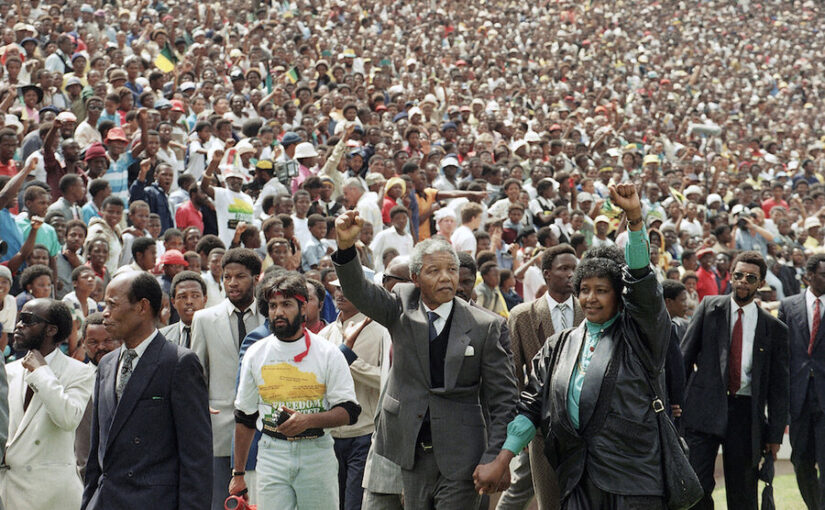
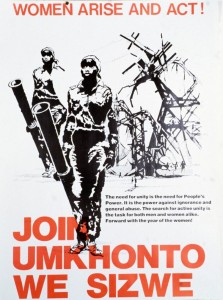
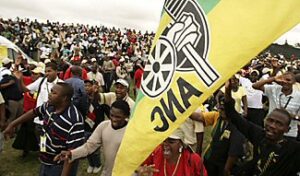
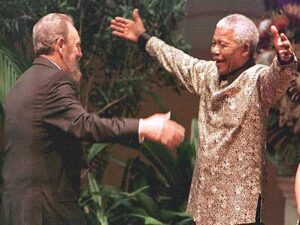
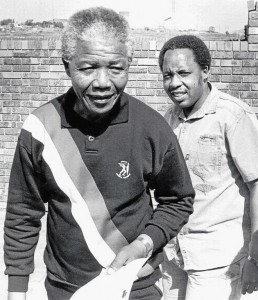
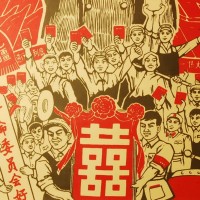
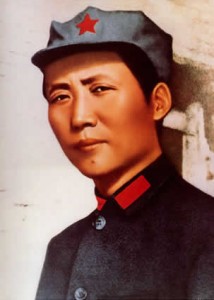
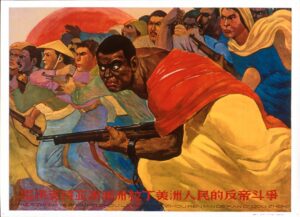 I wonder what sort of situation the rest of the world would be in now if it hadn’t been for Mao and the Chinese Revolution? I put it to you that the world would be a very different place, and a much less hopeful one for the masses of Asia, Africa, Latin America and the Caribbean.
I wonder what sort of situation the rest of the world would be in now if it hadn’t been for Mao and the Chinese Revolution? I put it to you that the world would be a very different place, and a much less hopeful one for the masses of Asia, Africa, Latin America and the Caribbean.